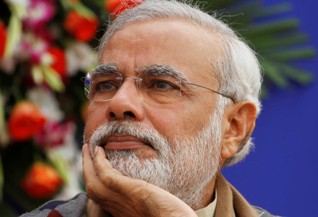  Stock markets have already declared Narendra Modi as the new Prime Minister of India. Sensex today touched all time high of 21483.74, up 487 points from its Friday closing, thanks to complete sweep of BJP in the Assembly election in four states.
It seems that the markets are overreacting to the current political scenario. The election results have made it absolutely clear that Modi has a big challenge in Arvind Kejriwal of the new political party AAP.
So Modi will have to overcome the new challenge. Kejriwal has already shown his capability of cutting BJP’s votes. If he decides to contest election in other parts of North India, he will certainly dig into NDA’s traditional base.
It is too early to predict what will be the shape of the new coalition government. If BJP gets less than 200 seats, then it will be difficult for NDA to give a stable government. If BJP gets more than 200 seats then the chances of stability are high and Modi will be able to provide good governance.
BJP’s success will also depend on its coalition partners in Southern and Eastern states. It has negligible presence in these states that account for 50% of Lok Sabha seats.
So moral of the story is investors should be cautious and should not jump to any conclusion. They should look at fundamentals of the company in which they want to invest instead of timing their investment.
While Modi factor was the major catalyst in BJP's victories in three states, Rahul Gandhi failed to galvanise the Congress voters resulting in humiliating defeat for the party. |